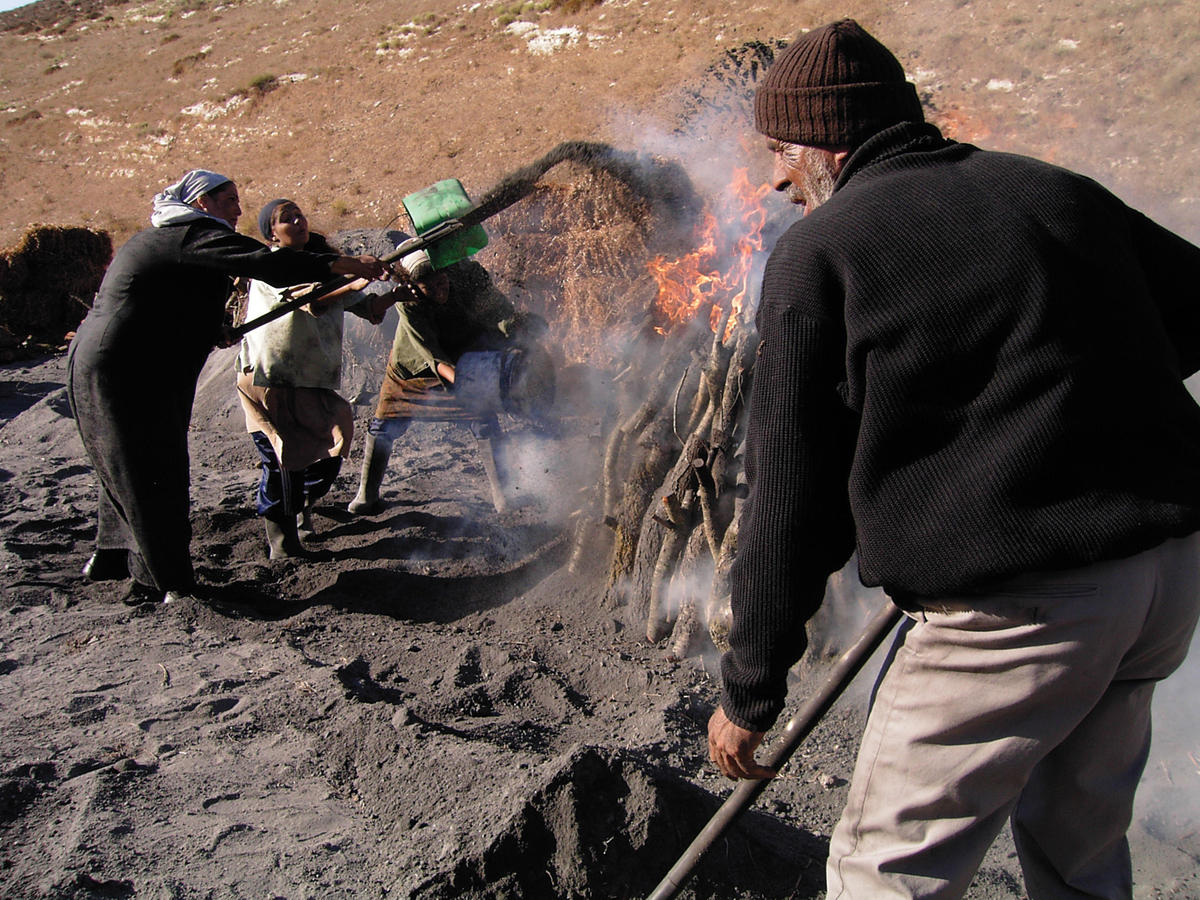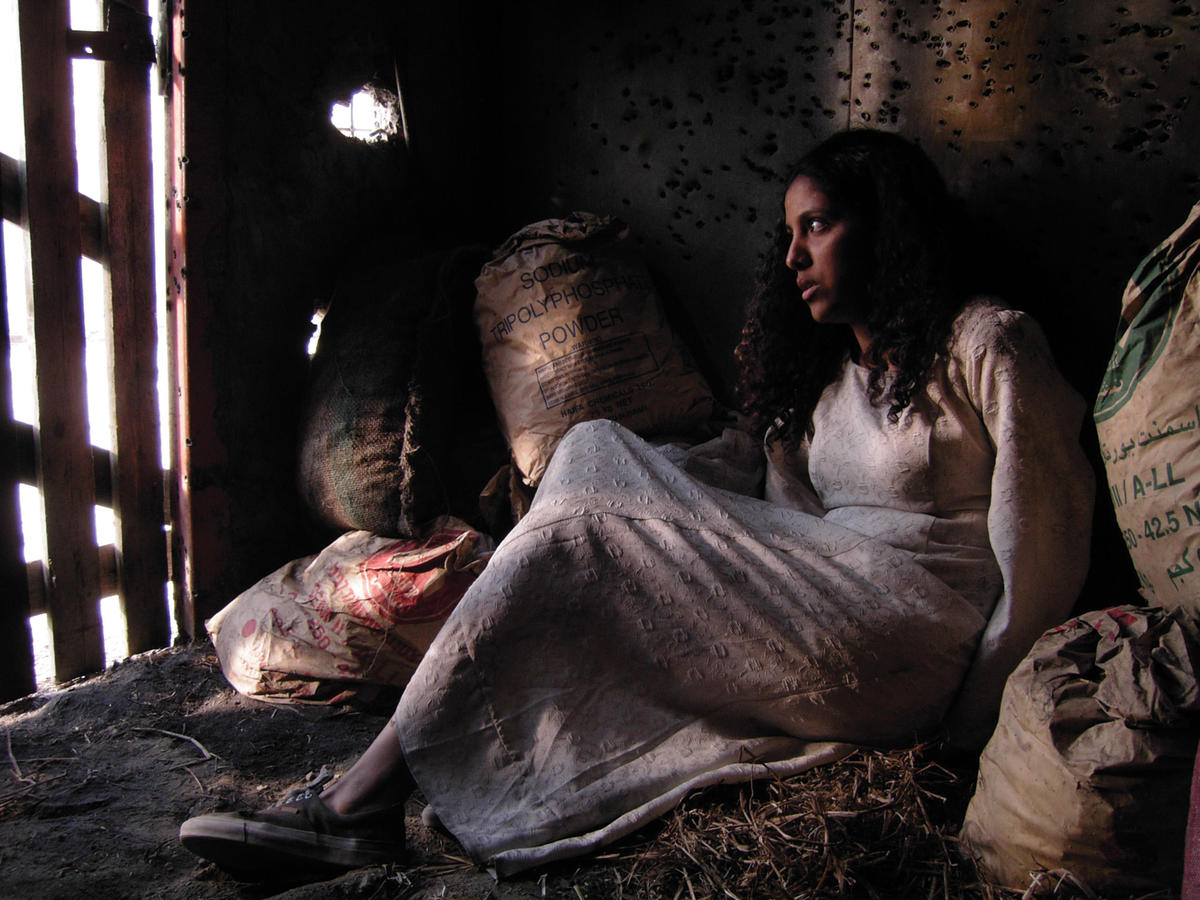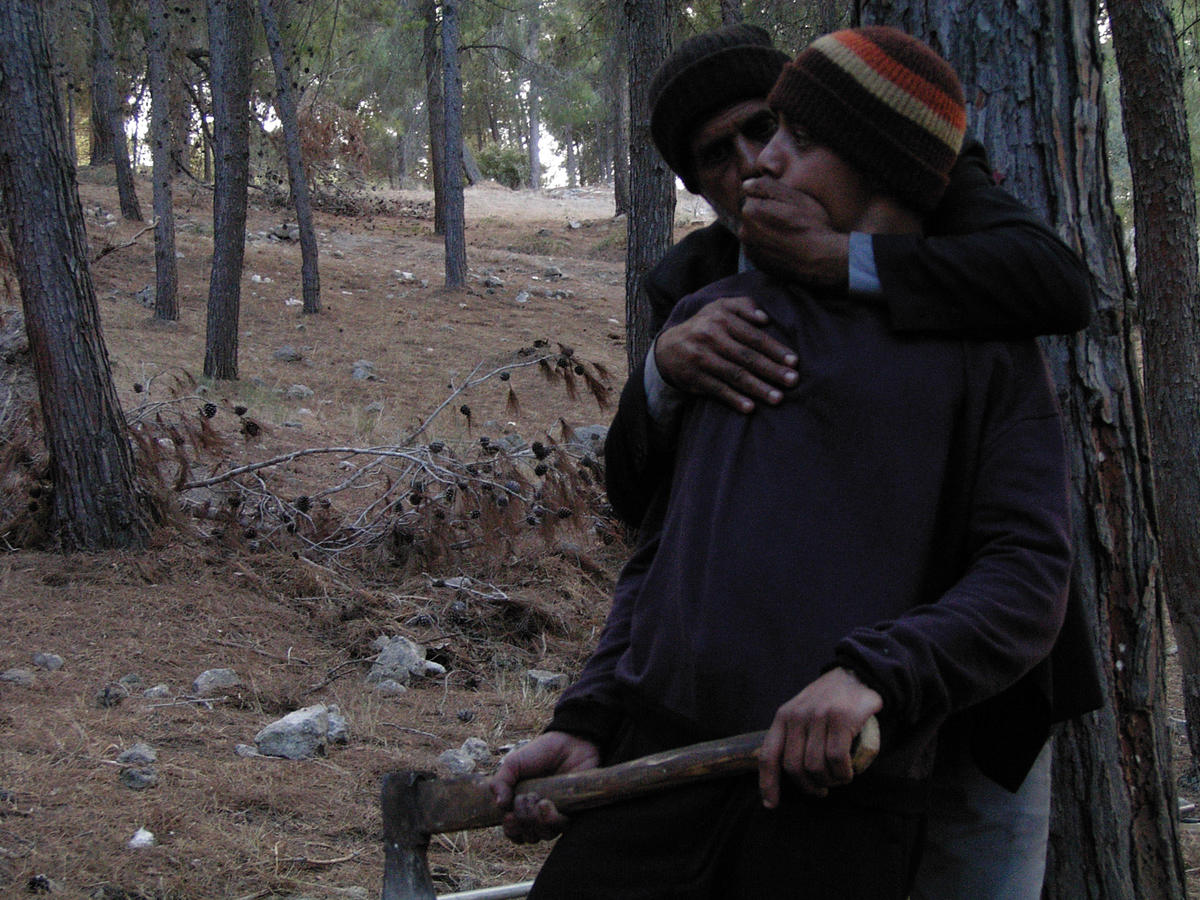
Smoke billows from a blazing heap of wood and charcoal as a man cries out for more water, his wife and daughters frantically throwing endless mounds of sand to douse the flames. Passively looking on is his son, Shukri, who uses the opportunity to run to school rather than help. So begins Atash (Thirst), the feature film debut from Tawfik Abu-Wael that has already picked up the Fipresci Award at this year’s Cannes Film Festival, as well as the Special Jury Prize at the 7th Biennale des Cinémas Arabes in Paris.
Set in Abu-Wael’s hometown of Um Al-Fahem (which means Mother of Charcoal in Arabic), the second largest Palestinian town within Israel’s pre-1967 borders, Atash focuses on a family cast adrift in a deserted outpost. Abu Shukri sells charcoal for a living, his wife, their son, and two daughters compelled endlessly to burn stolen wood. Obsessed with water he decides to build a pipeline directly to their house, despite protestations from his family. On the importance of water in the film, Abu-Wael commented, “Water is a power in our region. Whoever controls the water has the power.”
Added to this mix is a dark secret to do with the eldest daughter Gamila that is constantly alluded to but never explicitly revealed, a secret that has forced them to escape the derision of the neighbors. In this near primeval setting, where the unforgiving sun and aridness of the land is etched deeply in the mournful, embittered lines on Abu Shukri’s face, the director sets about unraveling his tale, imbued with an aura of tragedy that would put Sophocles in the shade.
The film is a devastating indictment of the patriarchal order of Arab society, the father’s hulking frame and piercing gaze dominating nearly every scene. At one point he tells his son, “Cursed is the man who trusts women.” Abu-Wael, however, avoids turning the figure of Abu Shukri into a simple villain. Instead we witness a broken man, unbearably burdened by regret and guilt. There is the implication throughout the film of an incestuous relationship between the father and Gamila, as he gazes at her endlessly, his eyes betraying a mix of desire, repulsion, and shame. It is a wonderfully subtle performance by Hussein Yassin Mahajne, considering that neither he nor the rest of the cast are professional actors. One particular scene is electrifying between the two characters, as Abu Shukri implores her to put on a new dress he has bought her in preparation for an imminent feast. “I’ll put it on when you’re my husband or lover,” she replies, an answer for which he slaps her. In a moment of defiance she undresses in front of him, leaving the bewildered man torn between staring at the floor and stealing one last forbidden glimpse of her naked body.

Commenting on the aesthetic style of his film, Abu-Wael told Bidoun, “I wanted to look at the conflict from my point of view, not with clichéd or typical imagery. I tried to find new images and new metaphors. This is my style, to use super 35, widescreen, also handheld footage. I like composition and creating the contrast between colors and lights.” Atash is undeniably beautiful, the harsh landscape providing ample opportunities for the director to show off visual flourishes that suggest a genuine cinematic talent. When the family first successfully install their pipeline, the gushing streams of water are lit in such a way as to take on a near celestial glow. Elsewhere, plumes of smoke and steam waft across the screen, the inescapable heat portentously alluding to the inevitably shattering climax.
The Palestinian–Israeli conflict takes a back seat for much of the film, although it lingers in the background, a shadow creeping into the edge of frame. This could be attributed to the fact that the film was financed entirely with Israeli money, although Abu-Wael defiantly noted, “It’s a Palestinian story. I don’t care from where I take the money. No one told me what to do. I’m a Palestinian who lives in Israel. I didn’t transfer to Israel. Israel transferred to me. They’re not doing me a favor giving me money to make the film.”
Ultimately this is a film about the politics of family relationships, the politics of one’s relationship with the land around one and the demons within, or, as Abu-Wael puts it, “the thirst for water, for sex, for love, for freedom, for Dostoevsky, for Shakespeare, for Tarkovsky. The thirst for life.”

Atash (Thirst), 2004. Dir. Tawfik Abu-Wael, Palestine/Israel, Arabic, 110 min.